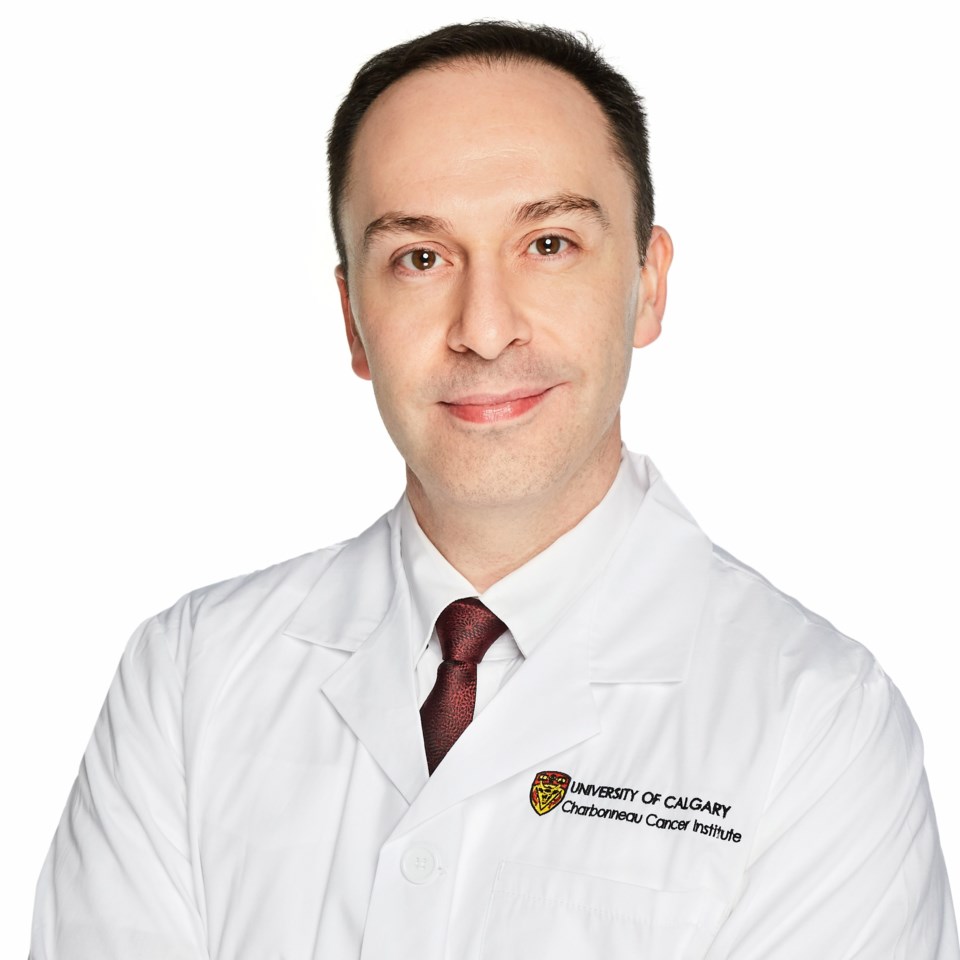CALGARY — A study suggests lower-income and younger people may be more at risk of developing lung cancer long-term because they can't afford to remove radon gas from their homes.
The study, from a multidisciplinary team of cancer researchers at the University of Calgary and University of British Columbia, was published Thursday in the journal Scientific Reports at Nature.com.
The researchers interviewed those living in nearly 3,000 households across Canada who had tested for and found radon in their homes.
The report says people who act quickly to learn about, test for and reduce exposure to radioactive radon gas in their homes could reduce their lifetime risk of lung cancer by as much as 40 per cent, compared to those who do not.
About 40 per cent of those surveyed took immediate action to remove the radon from their homes.
Aaron Goodarzi, a professor of biochemistry and molecular biology at the University of Calgary's Cumming School of Medicine, said radon can be removed from any building easily, quickly and relatively cheaply.
"What is striking, though, is one-third of Canadians can't afford to do this, even though they know they have a problem," said Goodarzi, who is also founder and scientific director with the non-profit Evict Radon.
"They tend to be younger and they tend to have more kids. And the worst case scenario is the younger you are when you're exposed, the higher your overall lifetime risk.
"Then there's another third that just aren't doing anything about it, more because it's delaying behaviour."
Radon is a radioactive gas that forms naturally when uranium, thorium or radium, which are radioactive metals, break down in rocks, soil and groundwater. People can be exposed to radon primarily from breathing it in air that comes through cracks and gaps in buildings and homes.
Goodarzi said radon gas is the second-leading cause of lung cancer in Canadians, especially for those who do not smoke. Canadian exposure to radon gas is three times higher than global norms, he said, and the Prairies, the Atlantic provinces and the North occupy the second, third and fourth most radon-exposed populations on the planet.
He said only Poland, among the 80 countries that keep track of radon exposure, has a higher rate.
The study's co-author said the results of the study also show a lack of health equity in Canada.
"People who do not smoke, but who are exposed to high levels of radon, would not qualify to be included in the lung cancer screening programs emerging across Canada," said Cheryl Peters, a senior scientist at the British Columbia Centre for Disease Control and СŔ¶ĘÓƵ Cancer. She also teaches at the University of British Columbia and University of Calgary.
Goodarzi said he hopes the findings will prompt policymakers to find a way to help those who can't afford to take action.
"Should we be subsidizing radon reduction for those who are in lower socio-economic conditions? There may well be benefits of doing it. It has been done in some other jurisdictions outside of Canada," he said.
"It behooves us to consider those that really identify as having a radon problem based upon hard data and just can't afford to do it right now. Maybe they just need a little help to push it over. That's where this conversation needs to be."
This report by The Canadian Press was first published Oct. 20, 2022.
Bill Graveland, The Canadian Press




